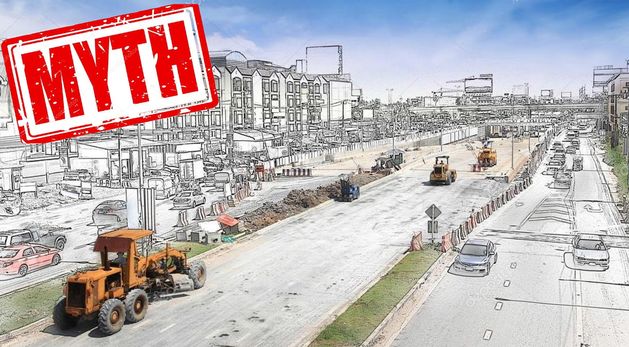Brendan Burgess
Founder
- Messages
- 52,117
A thought-provoking article here

 www.independent.ie
www.independent.ie
1) The First Time Buyer
The First-Time Buyer’ is a myth that needs to be put into perspective as the ultimate tiny tail that is wagging a very big dog. There are about two million houses and apartments in Ireland. Out of about 24,000 annual house purchases, only around 6,000 are first-time buyers.
This means that national policy is driven by the needs of one third of one percent of all homeowners, and one quarter of annual sales.
2) Generation Rent
‘Generation Rent’ is a myth-making trope that is used to persuade people that they are victims. Through boom and bust, for over 50 years Irish people have been increasingly choosing to rent rather than to buy. Today 30pc of us rent — a sign that Ireland is maturing to align with the European norm in advanced economies.
3) Rent is Dead Money
"
Dead Money’ is another phrase that is used to create a myth of victimhood among renters. It implies that rent money only serves immediate needs, unlike a mortgage repayment that is a form or saving or investment.
This is the equivalent of saying that food money is a waste because you’ll be hungry again tomorrow — so buy a cow, a chicken, an orchard instead.
4) The Housing Crisis
‘The Housing Crisis’ is the greatest myth of all. Readers are invited to google the words ‘Housing Crisis’ followed by a country of their choice. For starters, try Australia, Canada, New Zealand, Israel, Norway, France and the Netherlands.
Your research will tell you that there is hardly a country in the world that does not have headlines about rising rents and house prices, lack of supply, affordability, homelessness, price inflation — to name but a few ills.
...
We have more than 200,000 vacant homes across Ireland. When we encourage or allow the Government to support new-build housing instead of refurbishing then we are choosing to move away from availability and affordability.

Think you can handle the truth? Let’s demolish the four great myths of housing
Many myths and unrealistic expectations have arisen around housing and accommodation that need to be examined because these are the real drivers of affordability.
1) The First Time Buyer
The First-Time Buyer’ is a myth that needs to be put into perspective as the ultimate tiny tail that is wagging a very big dog. There are about two million houses and apartments in Ireland. Out of about 24,000 annual house purchases, only around 6,000 are first-time buyers.
This means that national policy is driven by the needs of one third of one percent of all homeowners, and one quarter of annual sales.
2) Generation Rent
‘Generation Rent’ is a myth-making trope that is used to persuade people that they are victims. Through boom and bust, for over 50 years Irish people have been increasingly choosing to rent rather than to buy. Today 30pc of us rent — a sign that Ireland is maturing to align with the European norm in advanced economies.
3) Rent is Dead Money
"
Dead Money’ is another phrase that is used to create a myth of victimhood among renters. It implies that rent money only serves immediate needs, unlike a mortgage repayment that is a form or saving or investment.
This is the equivalent of saying that food money is a waste because you’ll be hungry again tomorrow — so buy a cow, a chicken, an orchard instead.
4) The Housing Crisis
‘The Housing Crisis’ is the greatest myth of all. Readers are invited to google the words ‘Housing Crisis’ followed by a country of their choice. For starters, try Australia, Canada, New Zealand, Israel, Norway, France and the Netherlands.
Your research will tell you that there is hardly a country in the world that does not have headlines about rising rents and house prices, lack of supply, affordability, homelessness, price inflation — to name but a few ills.
...
We have more than 200,000 vacant homes across Ireland. When we encourage or allow the Government to support new-build housing instead of refurbishing then we are choosing to move away from availability and affordability.